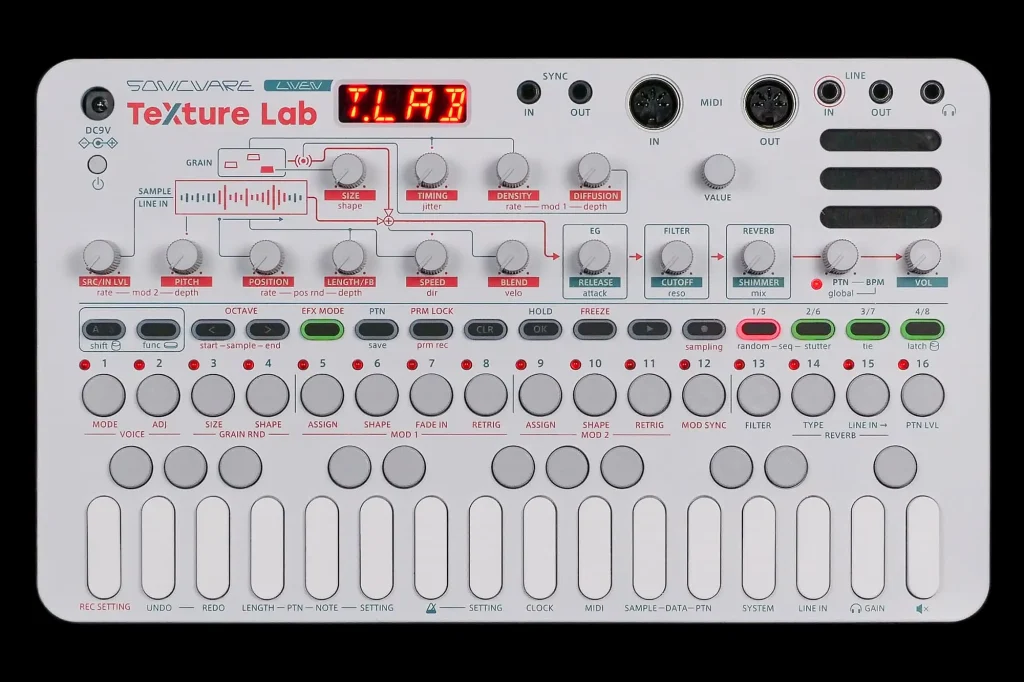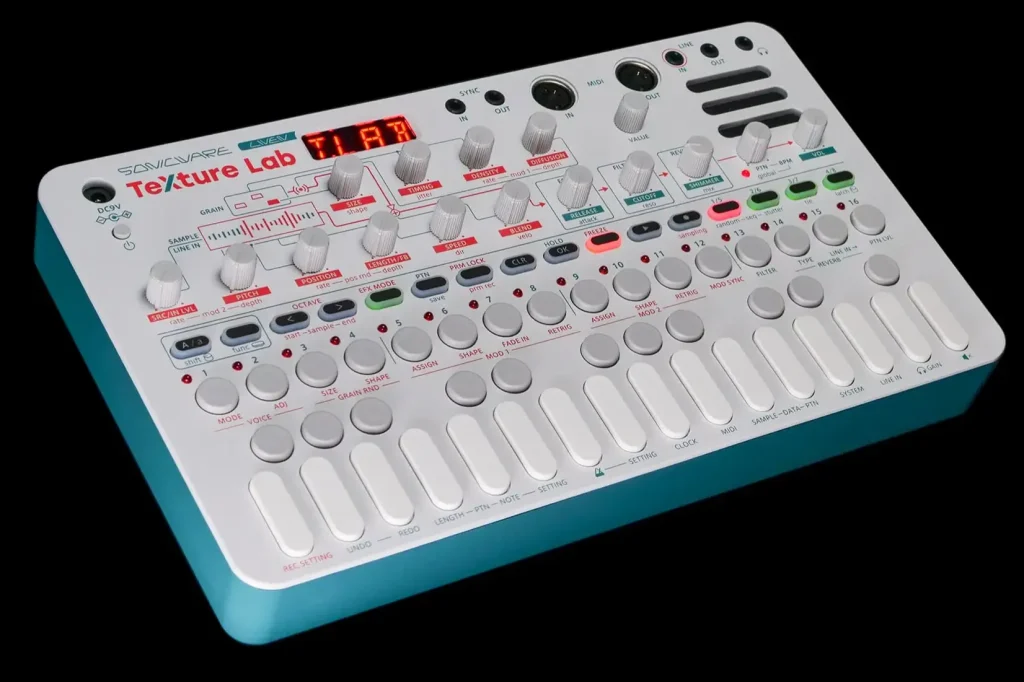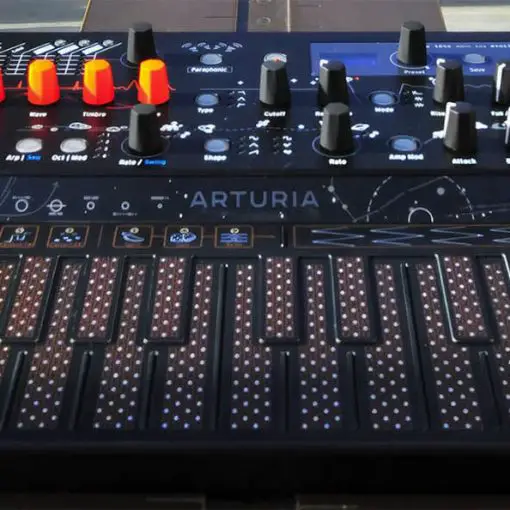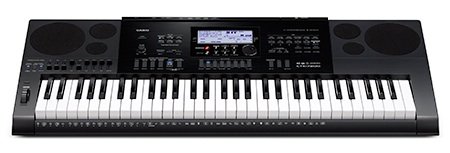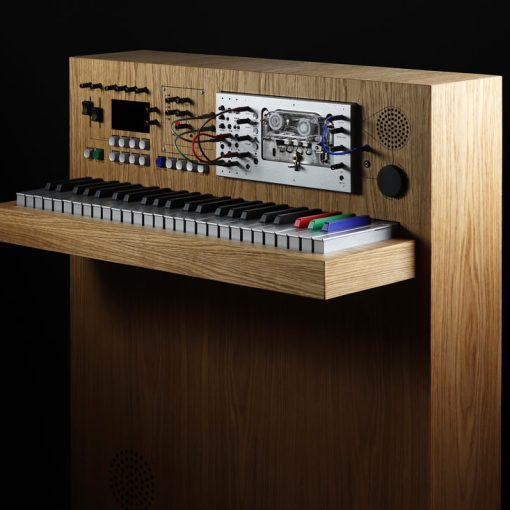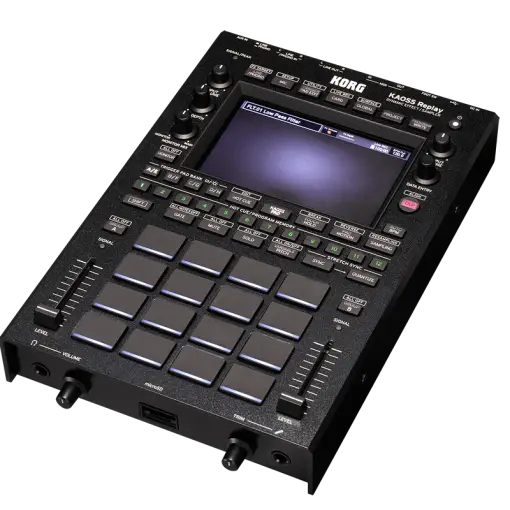You write about one granular synth and then another pops up on your news feed. Sonicware has just started shipping its first batch of LIVEN Texture Lab granola synth/effector units, offering a range of sample-licious features in a cute case.
Main features of the LIVEN are the ability to sample, slice, transform and reconstruct audio to synthesise completely new sounds; a granular effects processor more; shimmer reverb; 128-step sequencer with parameter locking; and world famous sound designer presets.
Sample, Slice, Transform, Reconstruct Audio
A huge range of sound textures from lush ambient pads to chaotic aggressive noise, with a granular processor that slices sounds into grains from 2ms to 1 second in length, transforms and reconstructs them in various ways such as grain shape, density, spatial position, and playback method, for entirely new sounds.
The parameters can be accessed from the 10 knobs in an intuitive way.
Granular Effects Processor Mode
The LIVEN Texture Lab has a 4-voice polyphonic synth able to record 32 samples of up to 6 seconds, generate grains from any part of a sample, and synthesise them using two modulations sources, an envelope generator, and process sound through different filter types.
The stereo line input can also be manipulated in real time or freeze sounds and add granulated effects.
Shimmer Reverb
On board are six high-quality stereo reverb types, which all include a shimmer parameter allowing you to layer reverb in octaves to create fantastical and majestic sounding spaces. Shimmer can also be applied to the line input.
128 Step Sequencer
The sequencer can record not only notes but also changes in granular processing parameters over time.
Specifications
The full specifications are as follows:
[Granular processor]
Synthesizer mode
– Sampling up to 6 seconds per sample (16bit – 32kHz mono, Start/end point adjustment)
– Auto start sampling function with the input level (input level can be set)
– Internal resampling function
– 32 sample memory slots
* Audio file converter (web app.) is available to convert Wav files to a MIDI SysEx file that can be imported into the Texture Lab.
Effects processor mode
– Real-time processing of stereo signals from the line inputs
– Freeze function
<Parameters>
– Pitch: Pitch of the sample (±2 octaves)
– Position, Length/FB: The sample range for generating grains (with random position function)
– Speed, Direction: Playback speed, scan direction, and playback direction of the grains.
– Size, Shape: Size and shape of the grains (with random function)
– Timing, Jitter: Interval of generating grains (with our original LUSH setting)
– Density: Number of the grains (up to 64 grains in legato mode)
– Diffusion: Diffusion width of the grains
– Blend: Balance between the sample and the granular sound mix
– Modulation 1: LFO assignable to various parameters (with wave shape selection, start fade-in time, retrigger, and tempo sync)
– Modulation 2: LFO assignable to various parameters (with wave shape selection, retrigger, and tempo sync)
<Envelope generator>
– Attack
– Release
<Filter>
– Low Pass
– High Pass
– Band Pass
?Reverb effects?
6 high-quality reverbs with Shimmer reverb parameters
– Hall
– Room
– Arena
– Plate
– Tunnel
– Infinity
<Voice mode>
– 4-note polyphonic mode (Up to 16 grains per voice, internal sequencer records up to 3 voices of polyphony)
– Mono mode (Up to 32 grains, adjustable glide time)
– Legato mode (Up to 64 grains, adjustable glide time)
– Arpeggiator modes (Up, Down, UpDown, DownUp, Up&Down, Down&Up, Up+1, Up+2, Down-1, Down-2, Random, Play Order)
[Sequencer]
– 1 track
– Up to 128 steps per pattern
– 128 patterns
– Step length can be set from 1/1 to 1/32
– Real-time recording
– Directly enter notes for each step when sequencer is on or off
– Enter longer notes (Tied notes)
– Metronome and pre-count function
– Undo/Redo function
– Transpose function
– Swing function
– Pattern BPM / Global BPM can be set
– Pattern chain function
– Parameter Lock function to record parameter settings for each step
– RANDOM function to play back steps in random order
– STUTTER function to play back only the step being pressed
[MIDI]
– Notes, control changes, clock input/output
– IMPORT/EXPORT of user data (Including samples) via Sysex
– Firmware update via Sysex
[Unit]
<Keyboard>
27 keys (with a hold function)
<Knobs>
– 15 physical control knobs
– Optional LATCH function prevents jumps in value when knob position and parameter values do not match.
– One physical encoder for fine adjustments.
– LCD dot indicates when a parameter value matches the saved value, or when the value has been changed.
<Audio in>
– LINE IN (stereo 3.5mm mini-jack)
– Compatible with Teenage Engineering Pocket Operator Series SYNC IN
<Audio out>
– Stereo line out (stereo 3.5mm mini jack)
– Headphone out (stereo 3.5mm mini jack)
– Compatible with Teenage Engineering Pocket Operator2 Series SYNC OUT
– Built in speaker
<Interfaces>
– MIDI IN connector (5-Pin DIN type)
– MIDI OUT connector (5-Pin DIN type)
– SYNC IN jack (monaural 3.5mm mini jack)
– SYNC OUT jack (monaural 3.5mm mini jack)
<Size>
297mm (W) x 176mm (D) x 48mm (H)
11.7 in (W) x 6.92 in (D) x 1.89 in (H)
<Weight>
790g
1.74lb.
<Power supply>
– 9V DC output AC adapter
Current: 1A or greater, Plug Type: EIAJ3 Standard, Inner Diameter: 1.7mm, Outer Diameter: 4.75mm, Polarity: Center +
– Compatible with power supplies designed for the Korg Volca1.
– 6 AA batteries
*The AC adapter and batteries are not included.
[Accessories]
– Warranty
Availability
The first batch of devices have already been shipped but the company are currently taking preorders for the next shipment, and will presumably continue as long as there is demand. Pricing is $239 or €319.
